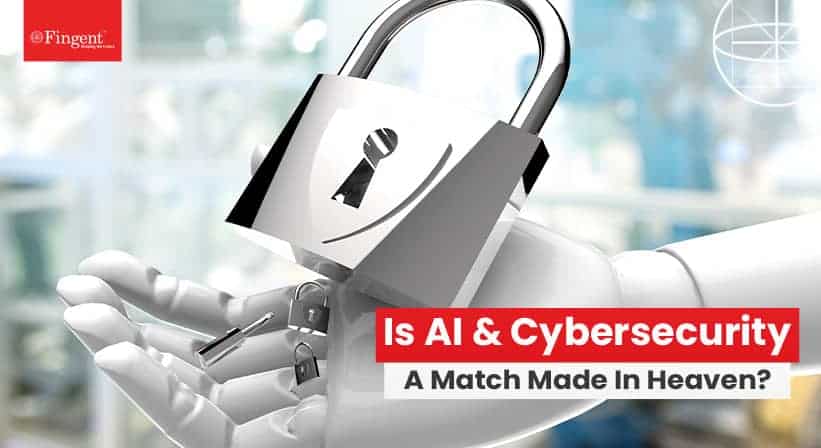5 Disruptive Technology Trends For Your Retail Experience
The past decade has been a game-changer for the way businesses operate in the realm of retail. The advent of e-commerce and its subsequent boom has compelled brick and mortar outlets to undertake a paradigm shift from a profits-first to a consumer-centric approach. Failure in conforming to new consumer demands fueled the retail apocalypse that toppled the brick and mortar landscape. Thus, we see retail giants like Bon-Ton Stores Inc., Sears and Macy’s filing for bankruptcy and liquidate their holdings.
Implementation of targeted mobile promotions, loyalty benefits, e-payment gateways is just some of the strategies adopted by retail outlets to maintain a competitive advantage in the face of fierce technological overhauls. With disruptive innovation gaining a strong footing now more than ever, the need to constantly reinvent and augment is more pressing than before. Here are five key disruptive technology trends that you need to sync your business model with, to offer consumers retail experience par excellence:
Related Reading: 5 Ways to Enrich Customer Experience at Your Retail Store
1. The advent of Artificial Intelligence
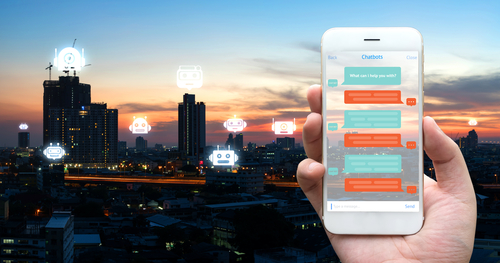
Robots and AI bots capable of not just learning but also executing real smartness are the new focus in tech innovations. Retail giants are already experimenting with ways to implement these AI bots in their business operations. A strong case in point would be Amazon’s no-checkout cashier-less convenience stores, Amazon Go being tested across different states in North America.
Then there are self-driving grocery stores and automated trucks making home deliveries that are still undergoing trials. Of course, that is not to say that AI dominating retail operations will become the new normal tomorrow, but it is in the offing. Businesses that are in the retail sector for the long haul will stand to gain from their preparedness to embrace this change.
2. The Internet of Things
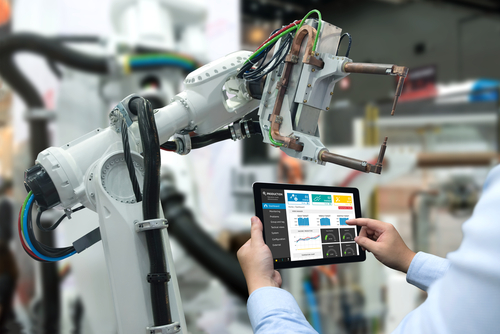
The ability of devices to interact with humans, understand commands and execute them is passé. The Internet of Things (IoT) puts the limelight on the ability of machines to interact with one another. The slow but consistent development of IoT is shaping up a new ecosystem where our gadgets will be able to operate without human intervention. Besides, the global market size for IoT in retail is expected to grow around 94.44 billion by 2025.
The emergence of IoT will inevitably alter the dynamics of the way consumers interact with retail business and the way businesses interact with distribution networks and supply chain partners. More importantly, it will usher in a connected customer model by relying on smart-store applications like smart shelves, beacons, and customer service robots. Making room for these swift connections powered by the internet will help you build a business model that is future ready.
3. Striking the Online-Offline Balance

It is the age of digital customers where the lines between online and offline existences are forever blurring. Brick and mortar businesses need an online extension to sustain themselves. Now, the spotlight is on understanding the dynamics of virtual and augmented reality and creating a marketing strategy that caters to the customers’ dual persona – considering their social media image and real identity – to encourage continued interactions and conversions.
The result – a complete overhaul of the shopping experience by bringing in a consistent omnichannel approach built around a convenient digital backend. For instance, Oasis, the UK-based fashion retailer is closing the gap between in-store and online purchasing by merging shopping experiences across its mobile app, website, and brick-and-mortar stores.
4. Personalized Shopping Experience

Take a look at how e-commerce websites function – bringing customers exactly what they need, every time, on every device, without fail. This carefully curated shopping experience eliminates the need for buyers to browse through the inventory of online stores to find what they need. Over time, this approach toward shopping has been normalized to an extent that customers expect the same out of their retail shopping experience too. Installing smart screens, tablets etc. is one way of using technology to recreate the same sense of personalization in your retail business.
5. Banking on Data
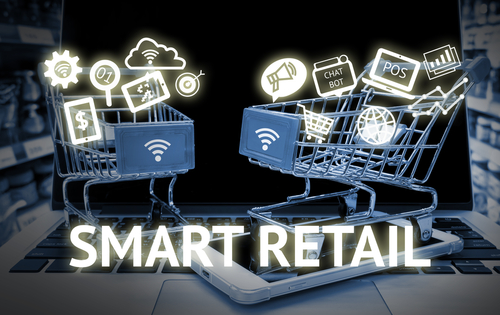
Big data is the next big thing in terms of business operations. Multinational corporations are pumping in billions of dollars to assimilate and organize this seamless information to create the right kind of marketing strategies. While big data may be out of your reach as a standalone business entity, you can create your own pool of data and use it to offer improved retail experiences for your customers.
Fun quizzes, for instances, are a great way to gather insights into your customers’ buying preferences, which can then be used to offer personalized product recommendations. You can take it a step further by tracking these recommendations to know if they are appealing to your customers and tweak them accordingly.
Related Reading: How Big Data and Analytics are Evolving Customer Experience in Retail
[Courtesy : European Bank for Reconstruction and Development]
Meanwhile, other technologies like virtual and augmented reality will continue to grow in popularity and efficiency. As a retailer, the onus of using these disruptive innovations to offer a seamless customer experience falls on you. Pairing with the right technology partner is the first step. Get in touch with our experts today to uplift your retail experience with cutting-edge software solutions.
Stay up to date on what's new

Recommended Posts
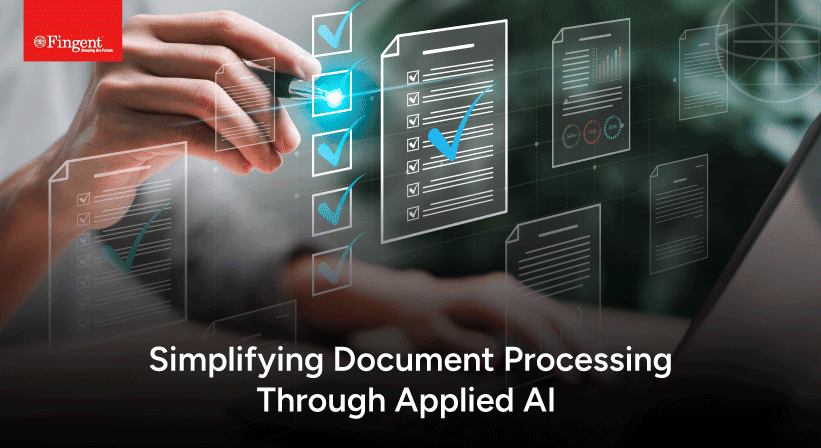
18 Apr 2024 B2B
Applied AI For Document Processing
"It's becoming increasingly clear that AI is the future, and almost everything else is a sideshow." - World-renowned computer scientist Geoff Hinton AI has taken over almost every aspect of……
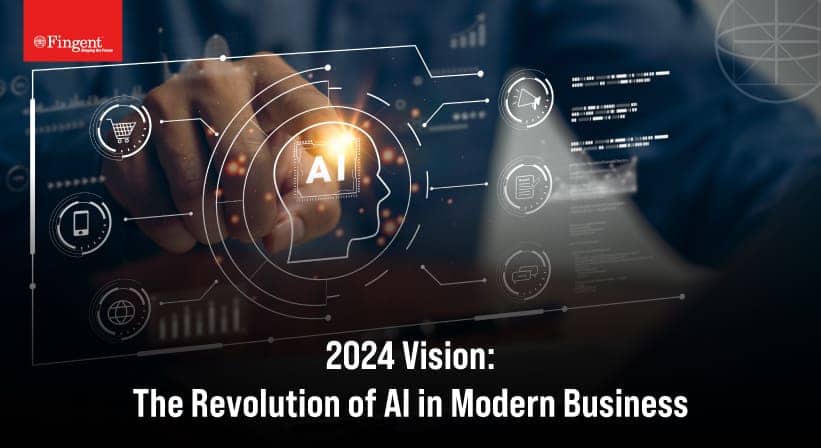
10 Jan 2024 B2B
AI Trends Set to Transform Businesses in 2024
In the dynamic realm of modern business, the profound impact of artificial intelligence (AI) continues to unfold, reshaping industries and redefining conventional practices. As we step into 2024, the transformative……

26 Nov 2023 B2B
Finding Success in the Aviation Business with AI
“Aviation is the branch of engineering that is least forgiving of mistakes.” - Freeman Dyson, British-American theoretical physicist and mathematician. The truth in that statement is sobering indeed. The precision……

27 Oct 2023 B2B
Generative AI – Magnifying the Power of AI in Business
Are you sick and tired of performing the same monotonous task every day? Well, if your answer is yes, then Generative Artificial Intelligence can benefit you. Technology is evolving at……
Featured Blogs
Stay up to date on
what's new










